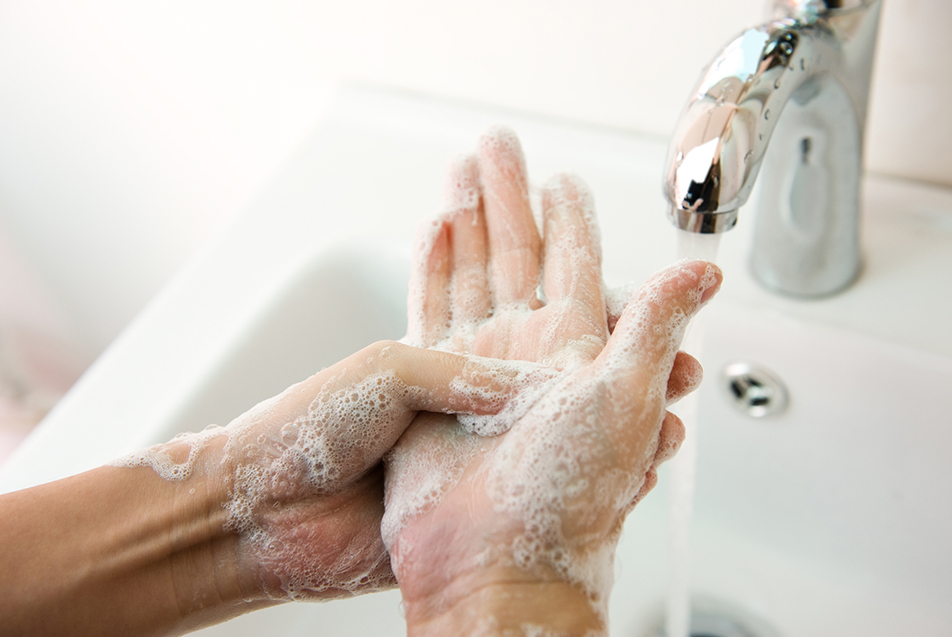
This post was written by Peg Brown, MPH, CIC, infection preventionist, Parkview Regional Medical Center, to mark International Clean Hands Week.
Working in a healthcare environment, we are told to practice and understand the importance of good hand hygiene for the primary reason of preventing disease transmission. But what about at home? Do we follow the same precautions?
Spreading the “love”
During the 2018 holiday season, norovirus was making its rounds in the greater Fort Wayne community. Like many other families gathering to celebrate the holiday, my family shared more with each other than hugs and gifts. Nearly a third of my extended family, including one of my children, came down with the notorious foodborne bug. After conducting some epidemiology work, the index case was identified – a young family with three children under 5 years of age who were ill with vomiting and diarrhea but did not want to miss out on the festivities. The dish they brought to share was a large, fresh fruit tray, served with a side of norovirus.
Tips to prevent the spread of disease
Besides strongly urging sick family members to stay home and get better, what can be learned from this unfortunate event? Here are five easy tips:
- Wash your hands for at least 20 seconds with soap and water before and after handling raw meats, fruits and vegetables
- Wash and disinfect surfaces before and after use
- Keep chilled food chilled
- Keep heated food heated
- Make hand sanitizers (gel or foam) easily accessible for guests
Most often we expose ourselves to pathogens via our unclean hands, so it stands to reason that we can prevent a large degree of illnesses by simply washing or sanitizing our hands. Remember this as you pump gas, push a shopping cart, press the ATM buttons or clean up after a sick child. Clean your hands. And if by chance you do become ill, please stay home. Sharing is not caring in this case.



